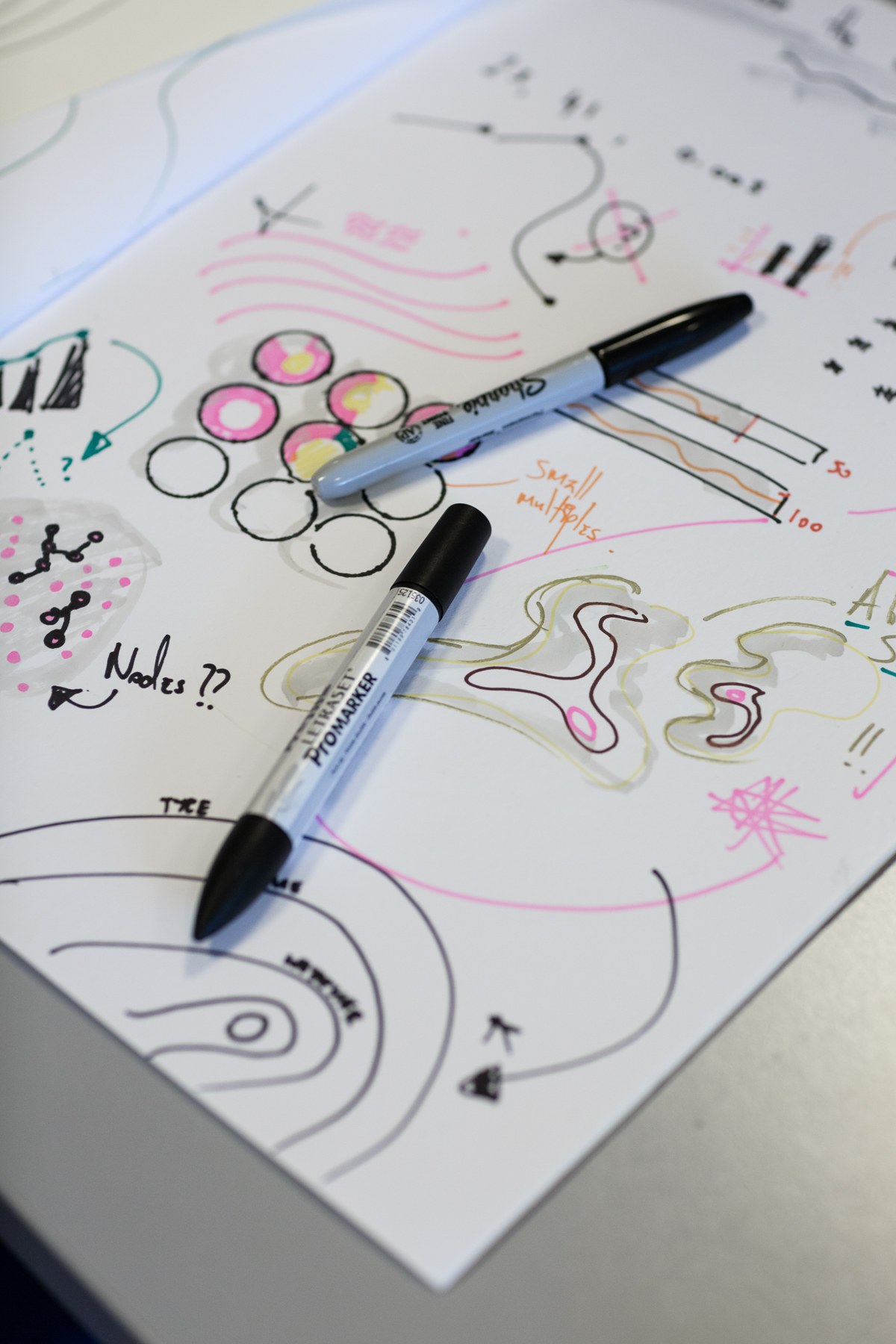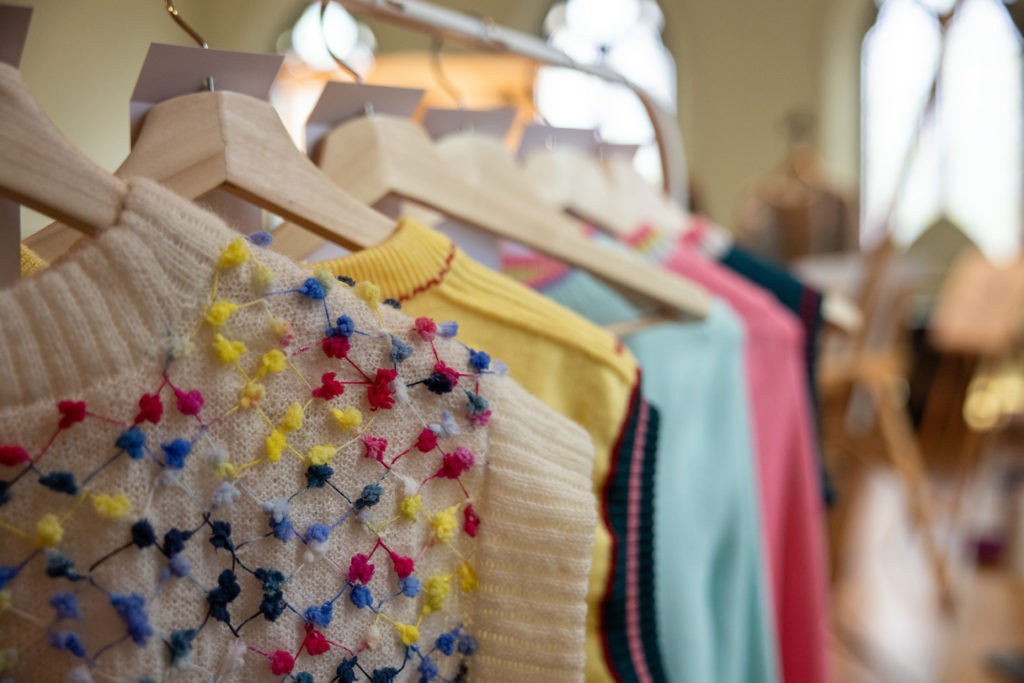
MA in Circular by Design (Part Time)

2 Sep 2024
- 29 Jun 2026
Apply to
NCAD
ECTS
90 (Level 9 NFQ)
Fees
€4,500 per year
Places
15
When
Sept 2024 - June 2026
Apply By
03/29/2024
Apply To
NCAD
ECTS Points
90 points
Course Code
AD 471P


NCAD
90 (Level 9 NFQ)
€4,500 per year
15
Sept 2024 - June 2026
03/29/2024
NCAD
90 points
AD 471P


NCAD and CFA understand the critical need to build the circular innovation capacity of Ireland’s design sector, and equip the next generation of fashion and textiles designers with the knowledge, skills and mindset needed to rethink why, what and how we make. Therefore, NCAD is developing a new suite of programmes, for current and future professionals who want to investigate and challenge the current ‘linear’ state-of-play.
The inaugural Circular by Design MA is focussed on the fashion and textiles sector. This part-time MA is for those who want to build a deep and nuanced understanding of sustainability and circularity within the fashion and textiles sector, and practically apply that knowledge to their own work or to tackle key ecological and social challenges across the value chain. The programme combines theory and practice and champions collaborative and pre-competitive processes.
Through a combination of taught seminars and workshops and independent study, learners will be invited to question and critique the purpose of textiles and fashion today, and investigate alternative ways of designing, producing, selling, using and disposing of textiles and clothing.
Using their own design practice, research and experience as a guide, learners will develop their own critical perspective on the local and global challenges the industry faces, and begin to shape and articulate their unique role within it, as change makers.
Through live industry-informed and led projects, learners will have the opportunity to collaborate with peers and with external partners such as fashion and textiles brands, retailers and manufacturers, circular innovators, social enterprises and local councils to innovate and test new circular materials, products and services.
The fashion and textiles industry is the joint third highest emitter of greenhouses globally, responsible for 10% of carbon emissions, more than all international flights and shipping combined. Operating in a largely linear take-make-use-waste system, textiles is one of the most pollutive and wasteful industries on earth.
In March 2022, the European Commission presented an “EU strategy for sustainable and circular textiles”, which sets an ambitious vision that ‘by 2030 textile products placed on the EU market are long-lived and recyclable, to a great extent made of recycled fibres, free of hazardous substances and produced in respect of social rights and the environment”.
The circular economy is an economic and industrial model based on the principles of reducing consumption of natural resources, designing out waste and pollution, keeping products and materials in use for as long as possible, and recycling the materials at the end of life.
However, the transition from a linear to a circular requires new and additional attitudes, knowledge and skill-sets. An estimated 80% of a product’s environmental impact is determined at the design stage, before production even begins. Therefore, designers have a pivotal role to play in reshaping all aspects of the industry – from materials, to products, to services, to systems.
Learners are required to commit +20hrs per week to successfully complete the programme. Learning hours per week vary, but typically, learners can expect up to 1 day per week (7-8 hrs) of contact time, and the remaining time (10-12 hours) will consist of individual and self-led work and study. This part-time MA is for two years, running from October 2023 until Summer 2025.
The programme will be delivered through a blended model, with both online and offline learning, to accommodate a diverse group of learners. Types of learning and teaching methods include lectures, seminars, masterclasses, workshops, small group presentations and tutorials. In general, learners will be expected to be on the NCAD campus for in-person delivery, once every three weeks.
Collaboration is a key element of the circular economy, since it is essential to work together throughout the supply chain, internally within organisations and with the public sector to increase transparency and create joint value.
Therefore, the part-time MA has a considerable emphasis on collaborative engagement with peers, as well as with private and public stakeholders from across the textiles value chain.
Throughout the programme, learners will receive input, in the form of lecturers, panel discussions and coaching from a number of international experts, companies and innovators, whose work is advancing the field of circular textiles and apparel.
Former visiting lecturers and guests to the Circular by Design 2022 programme with the Design and Crafts Council Ireland included:
Furthermore, a number of modules has been design specifically with the collaborations in mind;
The MA aims to prepare graduates for careers in the textiles and fashion industry, independent circular design consultancy, start-up ventures, creative practice and academic research. You will have the knowledge, skills, and attitude to develop and implement novel circular design and business model concepts. With the skills to develop circular design solutions related to material and product innovation and systems and service innovation, graduates have a wide range of local and global opportunities available to them. Potential career pathways for graduates include:
Graduates are also supported to progress to PhD level.
This MA is perfect for anyone looking to pursue careers or tackle problems related to the ecological, ethical, social and economic sustainability of the fashion and textiles industry.
Perhaps you are only starting out in this area and looking to gain a foundational understanding of the field and your potential role within it. Or you might already be dedicatedly working in this field, and looking to deepen your knowledge and become more effective in your changemaking.
Either way, this MA will enable you to apply the latest knowledge and tools to live ecological, social problems within the textiles value chain, and connect with a community of like-minded peers and professionals.
All applicants are expected to present an approved Bachelor degree at minimum level of 2nd class honours (2.2)
Applicants who do not meet the minimum academic entry requirements may be considered on the basis of prior work or learning experience (RPEL). Candidates may be required to pass a qualifying examination set by the relevant department before being accepted to a Masters degree programme. Attendance at selected undergraduate lecture courses at NCAD, together with related written work may be prescribed.
You may apply for the programme if you are currently completing your Undergraduate Degree. NCAD will review the rest of your application If necessary, we can make you a Conditional Offer. When your degree is completed and you send us final transcripts we will upgrade this to a Full Offer.
Essential Supporting documents
For information on tuition fees please follow this Link
There is an application fee of €55.00*
The fee for the programme is €4,500 per year.
Apply via NCAD HERE
Gwen Cunningham: cunninghamg@staff.ncad.ie
Bernie McCoy: mccoyb@staff.ncad.ie
postgraduate@ncad.ie
01 636 4200
A CFA scholarship encourages the participation of learners from sections of society that are significantly under-represented in higher education by offering one free place on all of our CFA short courses.